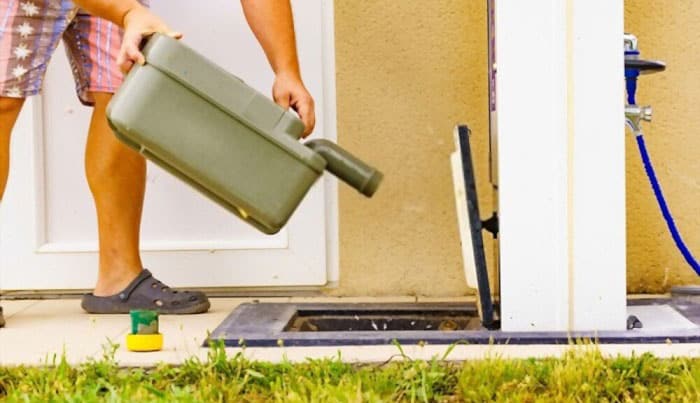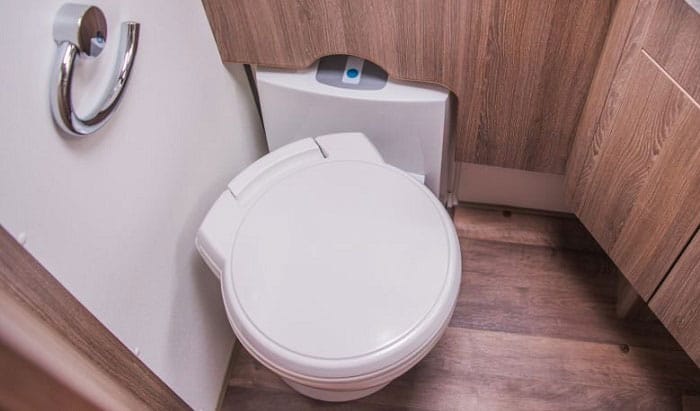For a trouble-free trip, having a pleasant experience using your toilet in your RV is a must. However, many are not aware that composting toilets for RV do not require any water to operate.
How does a composting toilet work in an RV, then? In short, it can separate liquids from solids and deliver them to their tiny tank or bucket. Meanwhile, an RV black water tank collects and holds all the waste flushed down the camper toilet.
In this article, you will know the difference between an RV composting toilet vs black tank? And with this, you will be able to distinguish what you should install in your RV.
Table of Contents
RV Compost Toilet vs Black Tank: Which One to Choose?
- A composting toilet for camper has no liquid mixed in with the solid waste. It does not degrade into sewage and emits the noxious stink that all campers despise. And instead of flushing waste with water and plumbing, that is how a composting toilet works in an RV.
- An RV black water tank collects and holds all of the waste flushed down the camper toilet. It will keep the waste till you open your black tank valve and empty the contents into a receptacle.
The black water tank is where your toilet’s waste is stored. An RV black tank is a holding tank attached to the RV’s underbelly. Therefore, the black tank collects all of the waste from the RV toilet.
For most campers, it is better to install an RV composting toilet than a black tank because composting toilets are less smelly than black tanks.
Composting Toilet for RV Pros and Cons
1. Pros of having a camper composting toilet:
- No Need for a Black Tank – Black Tanks are a bit of a hassle in cleaning and disposing of waste. But, with a composting toilet, you would not have to need one. You also won’t have to be concerned about your black tank being filled before you’re ready to relocate.
- Less Bad Smell – When particles and liquids are separated, they don’t produce the characteristic sewage odor that lasts for hours. It does not emit much of the smell that will stick to your toilet. Therefore, compared to using a holding tank, this one reduces the amount of unpleasant waste ordor.
- Eco-Friendly – It leaves less negative impact on the environment, compared to other toilets. The method allows you to recycle and compost anything that would normally go down your kitchen sink disposal, reducing household waste overall.
- Save Water – This method does not require a plumbing system or water supply to function, making it popular among campers. All trash is collected in a lower holding tank, where liquids evaporate, and solids decompose into fertilizer.
- Easy to Install – There isn’t much to install because there isn’t any plumbing system, just one vent pipe to run outdoors and one fan.
2. Cons of having a composting toilet for RV
- Odors, insects, and health risks can result from improper or poorly managed systems. So, there should be an effort for maintenance.
- It’s initial price can cause you some fortunes to invest in something that will last and be of help as this system.
- It takes quite a space in your RV since the toilet functions as a storage bucket. Therefore, we should make sure that the RV bathroom is roomy enough for this type of toilet.
Conclusion
Between RV composting toilet vs black tank, the latter seems more affordable yet less convenient. And after reading many reviews from campers that have used an RV composting toilet, there is a clear favor toward installing an RV composting toilet.
Because for a camper, having an RV composting toilet is much more efficient, eco-friendly, and maintainable than having black tanks in your RVs.
Still, the choice is yours. Make sure you check all the available options to match your requirements.

Hi, I am Joseph. Carpe diem! Seize the day! That’s always been my life motto. If you haven’t seen some of the most beautiful places in the country, you are missing out on incredible adventures.



